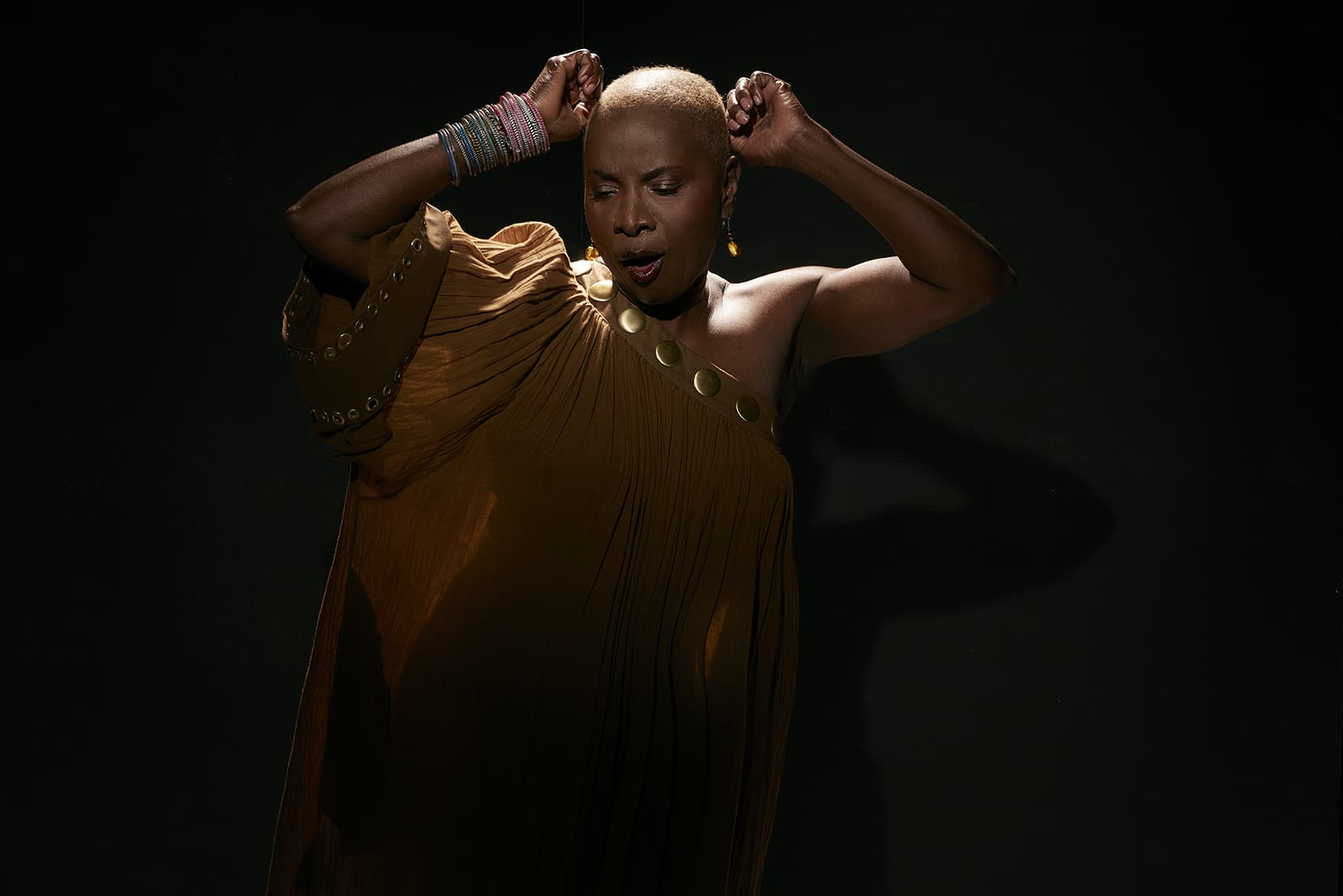Advertisement
Grammy Winner Angélique Kidjo Pays Tribute To Salsa Great Celia Cruz
Resume
Editor's note: This segment was rebroadcast on Aug. 12, 2021. Find that audio here.
Angélique Kidjo is doing tribute albums now.
Her first was a cover of the Talking Heads' "Remain In Light," the 1980 album from the band fronted by her mentor, David Byrne. Her new album, "Celia," pays tribute to the songs of salsa star Celia Cruz.
The Grammy Award-winning singer tells Here & Now's Robin Young that she was inspired by Cruz because she was one of few female singers in a genre of music dominated by men.
"The salsa is huge in Africa, but most of the bands that came to play with me [were] only male. So for me, salsa is a men's business," Kidjo says. "So come Celia one day, and I went to school and told some of my friends, 'Do you see that poster? A woman is singing salsa.' They say, 'Angélique, you're so naive, man. She's a background singer.' I said, 'I don't care.' "
The West African world music superstar grew up in Benin during a dictatorship, then fled to France. Now, Kidjo finds the diversity she cherishes in Brooklyn, New York.
"I've always sung as long as I can record. I cannot tell you when, how, why," Kidjo says. "All I knew was every time I was singing, I was feeling good. And I was just that kind of person that wants people to have a smile on their face all the time."
Interview Highlights
On meeting Celia Cruz
"I met Celia Cruz in Paris. I love [her song] 'Quimbara.' I say, 'Quimbara?' And I start singing 'Quimbara.' She said, 'Hold it right there. I will invite you on stage, and you come and join me for that song.' So when she invited me onstage, she gave me the microphone and I step back ... and I was singing something that was not 'Quimbara.' And I did the whole first verse, and she was like dying laughing. And then I looked at her and I said, 'I'm making a fool out of myself. Here's your microphone.' And I ran away."
On what inspired her about Cruz
"What was interesting for me is the African identity of Celia Cruz, and the way she sings is like a percussion player from my country. So for me, it was important to dig deep, to say to her, from an African sister to another one, 'This is our culture.' So every song on that album [has] always started with the drums, the horns because marching band, everything that can allow me to really go to the source and the foundation of salsa.
"Celia Cruz ... all of these women through their voice, I've seen endless possibilities, and I fly and I traveled the world. It's also difficult when you are born a girl in Africa. I was lucky to be born to family where I was born where my mom and dad have given us a platform to speak. When you are born a girl, you don't have an identity as a person. You just belong to your father that can marry you to anyone he decided to."
On why she's making tribute albums
"I do it because freedom is something that is colorless, and my father [has] taught me that as long as I do my music, not linking it to a political party, I will have a career. When you link your music to a political party, you lose every way, shape or form because they come and they go."
On her live performances of Nina Simone songs and why she hasn't sung "Strange Fruit"
"I've never been able to. I think that day will come, I will do that, because it doesn't come out of my throat. What we do to each other is absolutely ugly. 'Strange Fruit' is one of those songs that is a reminder of the people that said that they come to bring us civilization that conduct themselves as barbarians.
"It's hard for me because that wound is still open out there. And I do everything that I can in my capacity from music to heal the pain from both sides."
On if she will ever record a Nina Simone album and her plans to record a James Brown album
"It's more performance. I mean, it's gonna come one day. For me, it's all about inspiration. I was inspired to do the 'Remain In Light.' I was inspired really deeply to do Celia Cruz. Nina Simone will come one day. James Brown also will come one day.
"James Brown has been also [talking] about social issues. 'Say it loud. I'm black and I'm proud.' 'Living in America.' It's a man's man's world, but he would be nothing without a woman or a girl. That's an issue that he has been talking about before. Do we listen? We listen, but do we hear?"
Emiko Tamagawa produced and edited this interview for broadcast with Todd Mundt. Samantha Raphelson adapted it for the web.
This segment aired on April 30, 2019.
